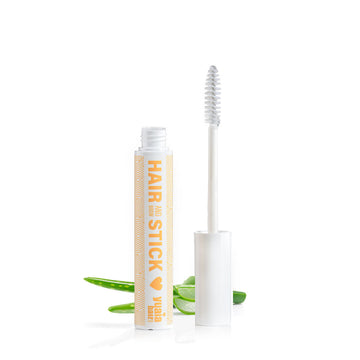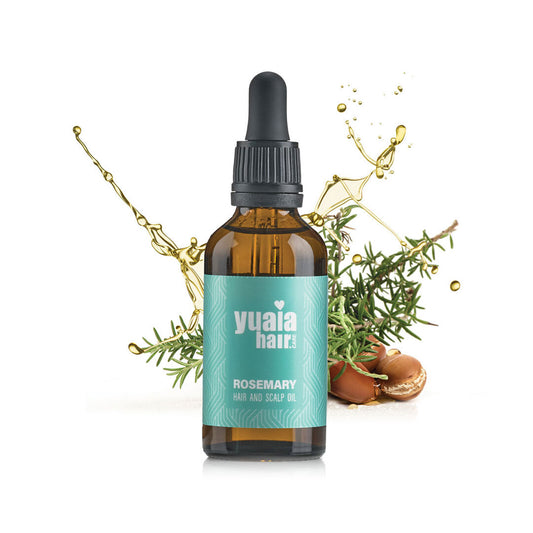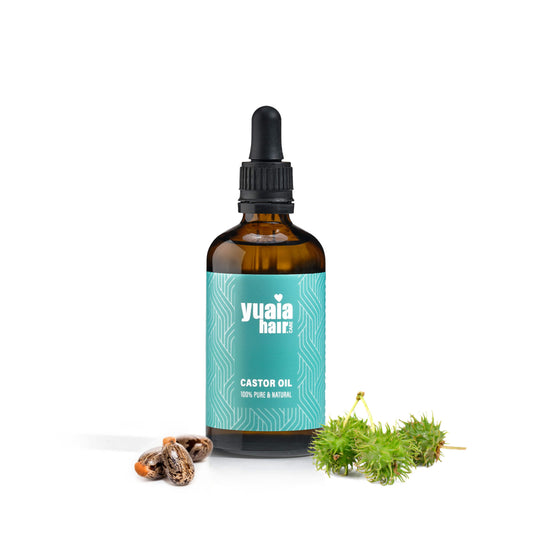
Antifungal and anti-inflammatory properties
One of the standout benefits of rosemary oil is its ability to combat dandruff, a common issue for those with dry scalp. The antifungal properties of rosemary oil target the root causes of dandruff, such as Malassezia, a yeast-like fungus that thrives on the scalp. By reducing the proliferation of this fungus, rosemary oil helps decrease flakiness and irritation, providing much-needed relief for those struggling with dandruff.
In addition to its antifungal effects, rosemary oil is renowned for its anti-inflammatory properties. These properties are particularly beneficial for soothing scalp irritation, making the oil an ideal choice for individuals with sensitive scalps. By calming inflammation, rosemary oil not only alleviates discomfort but also promotes a healthier scalp environment, which is essential for maintaining optimal hair health.
Moisturizing and circulation benefits
Beyond its antifungal and anti-inflammatory capabilities, rosemary oil is also celebrated for its ability to enhance scalp hydration. It works by boosting blood circulation to the scalp, which encourages nutrient flow and sebum production. This improved circulation not only aids in moisturizing the scalp but also supports its overall healing process.
Moreover, rosemary oil helps balance sebum production, addressing issues like oily roots and dry patches simultaneously. This balance is crucial for creating a healthier scalp environment, reducing the risk of further dryness or oiliness. Users can typically expect to see visible improvements in scalp hydration and reduced itchiness within a few weeks of consistent use.
Hair growth support
Another compelling benefit of rosemary oil is its role in supporting hair growth. By improving scalp health and circulation, rosemary oil creates an optimal environment for hair to grow. Many find that it helps reduce hair loss and promotes thicker, healthier hair.
Unlike some commercial treatments that may cause side effects, rosemary oil is a natural alternative that offers similar benefits with fewer risks. Its gentle nature makes it suitable for regular use, helping to ensure that a well-nourished scalp leads to healthy hair over time.
For those interested in incorporating rosemary oil into their hair care routine, our rosemary hair oil is an excellent choice. It can be used as a pre-shampoo treatment or added to your existing shampoo to enhance its benefits. Consistent use will not only improve scalp health but also support hair growth, making it a valuable addition to any hair care regimen.
Safe application methods
When using rosemary oil for dry scalp relief, it's important to apply it safely to avoid irritation. Diluting rosemary oil with a carrier oil, such as jojoba or coconut oil, is recommended. A common ratio is to mix 5-10 drops of rosemary oil with 1 tablespoon of carrier oil. This blend can be gently massaged into the scalp before shampooing or left overnight for deeper nourishment.
For those with sensitive scalps or color-treated hair, conducting a patch test is advisable. Apply a small amount of the diluted mixture to a discreet area of the scalp and wait 24 hours to check for any adverse reactions. This precaution ensures that the oil is suitable for your skin type and hair condition.
DIY remedies and product integration
Creating a homemade blend with rosemary oil is a simple yet effective way to nourish your scalp. Combine rosemary oil with a carrier oil and apply it as a pre-shampoo treatment. Alternatively, you can enhance your existing hair care products by adding a few drops of rosemary oil to your shampoo or conditioner. This integration not only boosts the moisturizing benefits but also provides a refreshing aroma to your hair care routine.
At Yuaia Haircare, we offer rosemary hair oil that can be seamlessly incorporated into your routine, providing a natural solution for dry scalp issues.
Addressing common concerns
Rosemary oil is versatile and suitable for various hair types, including dry, oily, and color-treated hair. Its balancing properties help regulate sebum production, making it beneficial for both oily and dry scalps. For optimal results, using rosemary oil 2-3 times a week is generally recommended. This frequency allows the scalp to benefit from the oil's properties without overloading it.
Combining rosemary oil with other essential oils, like lavender or tea tree oil, can enhance its effects. These combinations can provide additional benefits, such as soothing irritation or boosting antimicrobial action, further supporting scalp health.
Frequently asked questions
Is rosemary oil safe for children?
Rosemary oil can be used for children, but it is important to dilute it properly and perform a patch test to ensure there is no irritation. Consulting with a healthcare professional before use is also advisable.
Can rosemary oil help with hair thinning?
Yes, rosemary oil is known to support hair growth and may help reduce hair thinning by improving circulation and promoting a healthier scalp environment.
How long does it take to see results with rosemary oil?
Visible improvements, such as reduced scalp itchiness and flakiness, can often be seen within 1-2 weeks of consistent use. More significant improvements in scalp hydration and hair health may take about a month.
 Entrega en 2-4 días
Entrega en 2-4 días
 Más de 100.000 clientes satisfechos
Más de 100.000 clientes satisfechos
 Garantía de satisfacción
Garantía de satisfacción


























